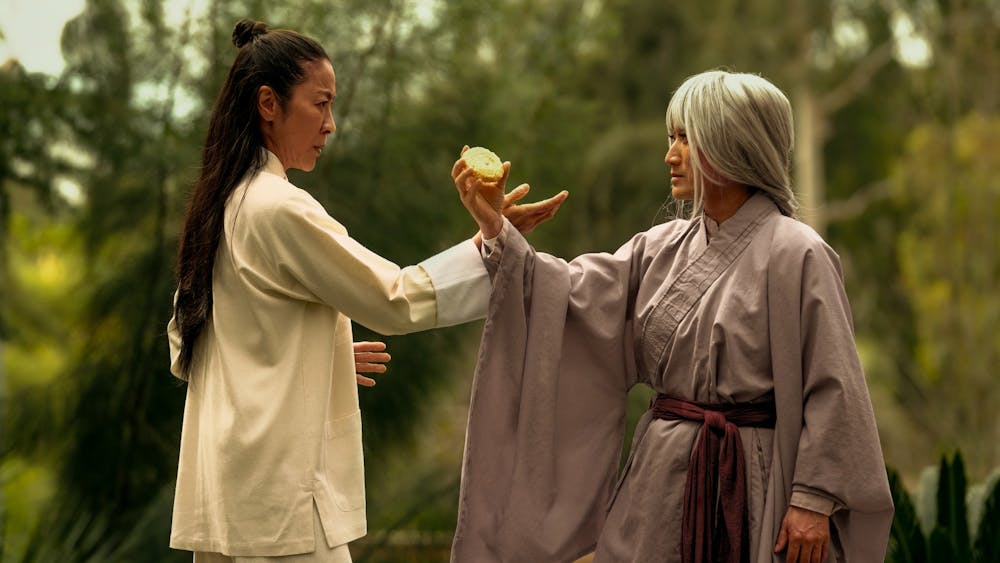Almost 20 years ago, “Crash” won Best Picture at the Academy Awards.
Backlash immediately swept down upon the decision. “Brokeback Mountain,” the clear frontrunner of the Best Picture race, was yet another victim of the Academy machine.
The 2006 decision in favor of “Crash” has aged like fine milk. The film has been criticized for many things – most notably, its incompetent understanding of race relations. Surely this decision had nothing to do with the 130,000 DVDs of the film that Lionsgate sent to Hollywood elites and voting members of the Academy of Motion Picture Arts and Sciences.
At their core, the Oscars are flawed. The people who make up the Academy do not truly represent the diversity of the film industry. They vote for films made by their friends or the ones aggressively advertised to them, rather than the films that truly deserve it.
[Related: IU Cinema to show 'X-Files,' 'Mulholland Drive,' and more January and February]
In the “Crash” decision, a primarily white voter base was shipped a free copy of a film that made them feel good for not being violently racist. The best films don’t win – the ones that advertise do. And there’s no sign that the Academy will truly change.
To their credit, the Academy has improved their diversity. Since 2012, the proportion of non-white members has increased by 13%. But the Academy is still 81% white. Despite these slight improvements, there has been little progress in diversity for 2023’s nominations.
This year, Michelle Yeoh put her name in the history books for being the first Asian performer nominated for Best Actress. However, outstanding performances by Black actresses such as Danielle Deadwyler in “Till” and Viola Davis in “The Woman King” were overlooked yet again.
There’s only ever been one Black Best Actress winner, Halle Berry in 2002, not to mention the overall lack of Asian nominees for the category. If the Academy is really dedicated to diversity and inclusion, why aren’t they nominating more talented women of color?
To be fair, the Academy is adopting new diversity guidelines for Best Picture eligibility for next year’s awards. But these rules still overlook the whitewashing of the Best Actor and Actress nominees. Winning an Oscar can make a career, especially for marginalized performers – but the Academy is still underdelivering.
The Academy also famously overlooks genre filmmaking. Only six horror films have ever been nominated for Best Picture. Jordan Peele’s “Nope,” which was, in my opinion, one of the best films of the year, is up for a grand total of zero awards. The film displays outstanding acting, music and special effects, among others, and yet will receive no recognition by the biggest awards show in Hollywood.
This lack of diversity in films shows that the Academy is unconcerned with truly acting on their goals. The Oscars are meant to display outstanding talent in filmmaking, not act as a popularity contest for the biggest Hollywood celebrities.
[Related: COLUMN: 'The Banshees of Inisherin' is a hilariously grim metaphor for the Irish Civil War]
Currently, the Academy is investigating actress Andrea Riseborough for lobbying after she gained a Best Actress nomination for her performance in indie flick “To Leslie.” But how is Riseborough’s lobbying any different from the campaigning dozens of other nominees have done? Film studios pour millions of dollars into Oscar campaigning but just don’t say “vote for me.”
As someone who is studying film and dreams of working in the film industry, I’m very disappointed by how the Oscars function. I can only hope that the Academy will improve their voting methods so filmmakers can be properly awarded for their hard work.
Reforming the Academy will be tough work. But if voters go back to caring about artistic integrity rather than who can shell out the most private lunches, maybe we won’t have another upset like “Crash.”
Danny William (they/them) is a freshman studying media. They admit their bias in this article with the confession that they are gunning for that “Everything Everywhere All at Once” sweep.






